
FAES Board of Directors
FAES is governed by a Board of Directors through the Board Chair, other officers, and a series of advisory committees. FAES Directors may vote in Board elections and are encouraged to participate in program management.
List of FAES Board Presidents / Chairs
2024 - PresentAlan Goldhammer, PhD
- 2021-24Barbara Alving, MD, MACP
- 2027-21Susan F. Leitman, MD
- 2014-16Angela M. Gronenborn, PhD
- 2012-13L. Earl Laurence, MD
- 2008-11Edwin D. Becker, PhD
- 2005-08Henry Metzger, MD
- 2000-05Jacob Robbins, MD
- 1995-00J. Edward Rall, MD
- 1992-95Karl A. Piez, PhD
- 1990-92Henry Metzger, MD
- 1988-90Martha Vaughan, MD
- 1986-88Alan N. Schechter, MD
- 1984-85Edward D. Korn, PhD
- 1982-84Alan Peterkofsky, PhD
- 1980-82Elizabeth F. Neufeld, PhD
- 1978-80Robert S. Adelstein, MD
- 1976-78Robert Goldberger, MD
- 1974-76Karl A. Piez, PhD
- 1973-74DeWitt Stetten, Jr., MD
- 1971-73Philip Leder, MD
- 1970-71J. Edward Rall, MD
- 1968-70Carl R. Brewer, PhD
- 1967-68Roger M. Cole, MD
- 1965-67Daniel Steinberg, MD, PhD
- 1964-65John C. Eberhart, PhD
- 1962-64Robert W. Berliner, MD
- 1959-62Daniel Steinberg, MD, PhD
FAES Board of Directors, 2025–2026
Officers

Board Chair
Alan Goldhammer, PhD
Dr. Goldhammer is an independent consultant in drug regulatory affairs. He received his BA in chemistry from UC Santa Barbara and his PhD in biological chemistry from Indiana University. He held an NIH post-doctoral fellowship at Cornell University and was a Senior Staff Fellow in the Clinical Endocrinology Branch, NIDDK. Dr. Goldhammer spent 27 years in the biopharmaceutical industry in regulatory affairs and drug safety, retiring in 2010 as the Vice President for Scientific and Regulatory Affairs at the Pharmaceutical Research and Manufacturers of America (PhRMA). While at PhRMA, Dr. Goldhammer coordinated several projects that led to public/private partnerships between the FDA, NIH, and the pharmaceutical industry and also received two awards for exceptional service. Dr. Goldhammer has served on advisory panels for the Institute of Medicine, the Office of Technology Assessment, the Food and Drug Administration, and the Environmental Protection Agency. Dr. Goldhammer currently assists industry and academic clients on matters of drug development and drug safety. He also chairs the FAES Investment Committee.

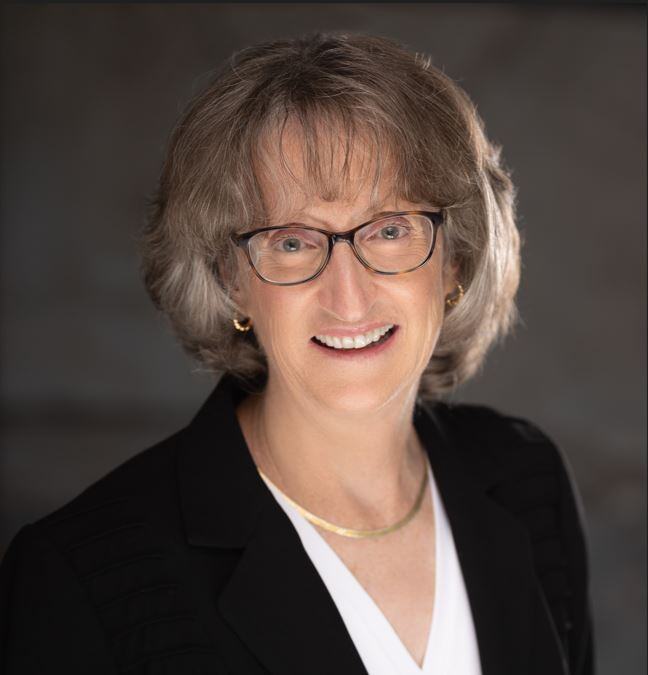
1st Vice Chair
Kathryn Norcross, JD
Retired Chief, Appellate Litigation Unit, Legal Division, FDIC
Ms. Norcross is a lawyer with more than 40 years of experience in private practice and the federal government. Ms. Norcross served the Federal Deposit Insurance Corporation in its Legal Division for 33 years, retiring from the role of Chief, Appellate Litigation Unit. At the FDIC, she supervised lawyers who briefed and argued appeals pending in federal and state courts across the country involving directors’ and officers’ liability, federal tax, commercial, bankruptcy, banking, employment and administrative law issues. Before that, she supervised lawyers in FDIC’s Commercial Litigation Unit who represented the FDIC at the trial level in cases that arose in the wake of the 2008 financial crisis. She has been involved in some of the largest bank failures in the nation’s history, including as FDIC’s chief negotiator for the settlement of large lawsuits arising out of the failure of Washington Mutual Bank. Ms. Norcross also taught Appellate Advocacy at American University’s Washington College of Law, where she received the Adjunct Professor of the Year Award for Excellence in Teaching. She is admitted to practice before the U.S. Supreme Court, and holds licenses to practice law in Maryland, DC, Texas and NJ. She has filed briefs or appeared before every Federal Circuit Court, numerous Federal District Courts, and many state courts.


2nd Vice Chair
Allison Nugent, PhD
Director, Magnetoencephalography (MEG) Core Facility, NIMH,NIH
Dr. Nugent received her BS in physics and math from Missouri State University, a PhD in physics from Duke University, and an MA in bioethics from the Medical College of Wisconsin. Dr. Nugent came to the NIH in 2001 as a staff scientist under Dr. Wayne Drevets in NIMH, where she supported a neuroimaging program including MRI and PET studies. In 2009 she began working under Dr. Carlos Zarate, also of NIMH, where she directed a neuroimaging program including MRI, PET, and MEG studies. In 2018, Dr. Nugent began her tenure as the director of the NIMH MEG Core Facility. Her research focuses on novel applications of MEG and development of optically pumped magnetometer arrays for high resolution MEG. Dr. Nugent serves as Secretary of the NIH Assembly of Scientists and has served on the NIH Anti-Harassment Steering Committee since its inception. She is committed to the training mission of the NIH. Dr. Nugent has mentored or co-mentored post-baccalaureate, pre-doctoral, and post-doctoral fellows nearly every year of her 20-year tenure at the NIH. She has also been involved directly in organized training programs. She has assisted with the NIMH Ethics for Lunch ethics training program, has served as a guest lecturer for the FAES Neurobiology of Mental Illness course, and currently oversees formal training for users of the MEG Core Facility. Dr. Nugent also recognizes and appreciates FAES’s unique services to NIH. Her lab has benefited directly from the educational courses offered, financial and logistical support of NIH sponsored workshops, and the insurance program for trainees.
*Dr. Nugent is serving in a personal capacity as an outside activity.

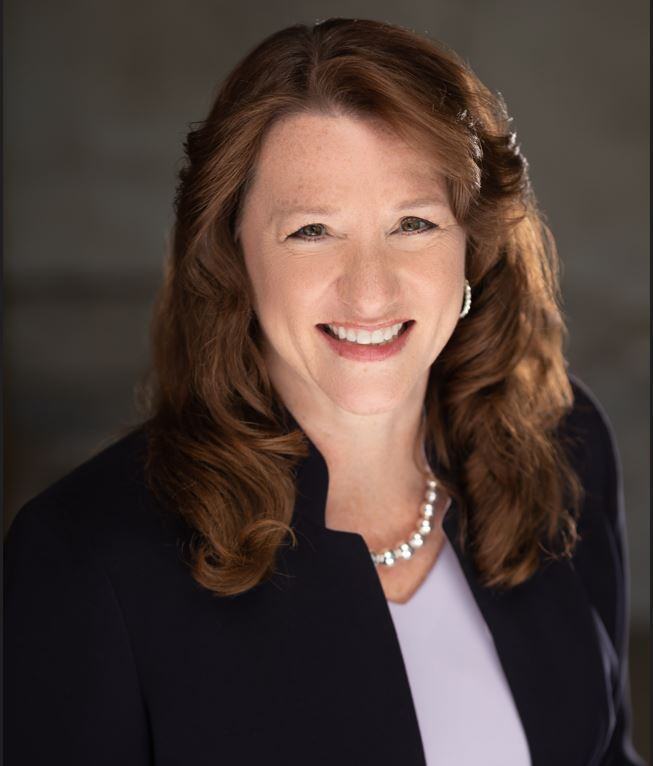
Treasurer
Nancy Johnson, CPA
Partner, UHY LPP
Ms. Johnson is a partner at UHY LLP, specializing in audit and assurance services to not-for-profit organizations and qualified employee benefit plans. She received her BS in Accounting from Auburn University and is a licensed CPA in the state of Maryland and in Washington, D.C. She has more than 30 years of experience in not-for-profit assurance, specializing in trade associations, charities, membership organizations, and educational institutions. Ms. Johnson conducts financial audits, reviews, and compilations. Her specific experience with not-for-profit entities includes financial audits plus audits in accordance with Government Auditing Standards and Single Audits under OMB Uniform Guidance and Presentations to Audit Committees and Boards of Directors. Ms. Johnson is a member of the American Institute of Certified Public Accountants Maryland Association of Certified Public Accountants.

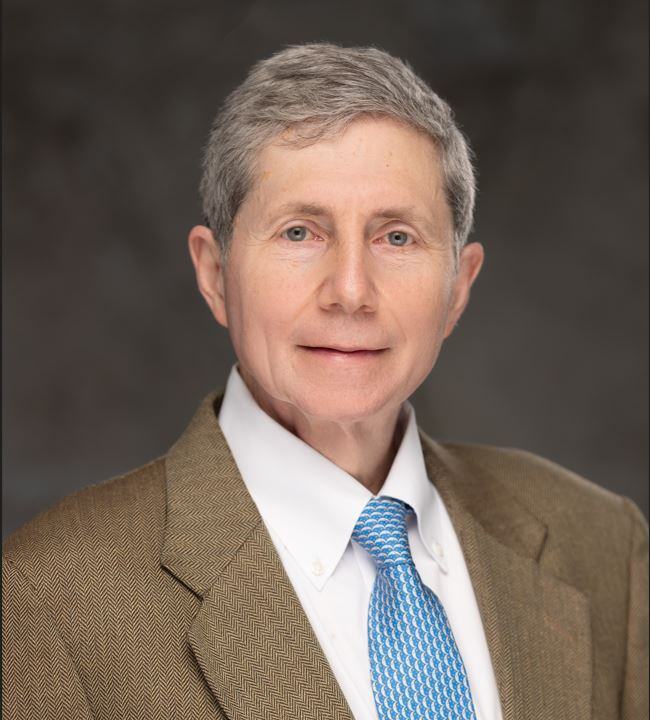
Secretary
Joshua Farber, MD
Chief, Inflammation Biology Section, NIAID
Dr. Farber* is Senior Investigator and Chief, Inflammation Biology Section, Laboratory of Molecular Immunology at the National Institute of Allergy and Infectious Diseases. He received his MD from Johns Hopkins University in 1977 and completed his residency in internal medicine and fellowship in infectious diseases at Hopkins. He pursued research training in the Laboratory of Biochemistry, NHLBI (Earl Stadtman laboratory) and in the Department of Molecular Biology and Genetics at Hopkins (Daniel Nathan laboratory). He joined NIH as an Investigator in the Laboratory of Clinical Investigation in 1993 and became Senior Investigator in 2000. He is an elected member of the American Association of Physicians.
*Dr. Farber is serving in a personal capacity as an outside activity.

Directors

Michael Collins, MD
Retired Chief, Skeletal Disorders and Mineral Homeostasis Secon, National Institute of Dental and Craniofacial Research, NIH
Dr. Collins, recently retired Chief, Skeletal Disorders and Mineral Homeostasis Secon, National Institute of Dental and Craniofacial Research, NIH, where he spent a 29-year career studying bone biology and mineral metabolism, focusing on disorders such as fibrous dysplasia of bone, hypoparathyroidism, and diseases of FGF23 excess and deficiency. He started his studies as a classical musician, obtaining a music degree in clarinet performance from Catholic University, before switching to medicine and obtaining his medical degree from the University of Maryland, where he also completed his residency and chief residency in internal medicine. Dr. Collins did his endocrine fellowship at the NIH, and remained there for his entire career. He made major contribuons to understanding the pathophysiology and natural history of McCune-Albright Syndrome/Fibrous Dysplasia and has served as the Chair of both the Medical and Science Advisory Boards of the Fibrous Dysplasia Foundation. He was also a member of the FDA Advisory Committee for Reproductive Drugs. Dr. Collins trained a large number of clinical and research fellows and post-bacc scholars, and was the recipient of numerous NIH awards, including the NIDCR 2022 Mentoring Award. FAES Activities: For more than a decade, Dr. Collins has been an instructor in the FAES Endocrine Board Review Course, giving lectures on osteoporosis and other bone disorders. He is interested in advising FAES Academic Programs about Workshop collaborations, and joining the FAES Music Committee. As a former resident of the Alta Vista neighborhood in Bethesda, he would also like to participate in the FAES Real Estate Working Group.

.jpg?width=229&height=229&name=Dr.%20Mitchell%20Ho(2).jpg)
Mitchell Ho, PhD
Deputy Chief, Laboratory of Molecular Biology, Director of Antibody Engineering Program, NCI
Dr. Ho * is Deputy Chief, Laboratory of Molecular Biology, National Cancer Institute and Director of the NCI Antibody Engineering Program. He received a BS from East China Normal University and an MA from San Francisco State University. He received his PhD at the University of Illinois at Urbana-Champaign, and completed a postdoctoral fellowship with Ira Pastan at the NCI. Dr. Ho became a Tenure Track Investigator at the NCI in 2008 and was promoted to Senior Investigator in 2015. His laboratory studies the molecular basis of cell surface receptors and designs novel antibody therapeutics. The antibodies, CAR T cells, and immunotoxins developed in his lab are being tested at preclinical and clinical stages for liver cancer, neuroblastoma, mesothelioma, and pancreatic cancer.
*Dr. Ho is serving in a personal capacity as an outside activity.

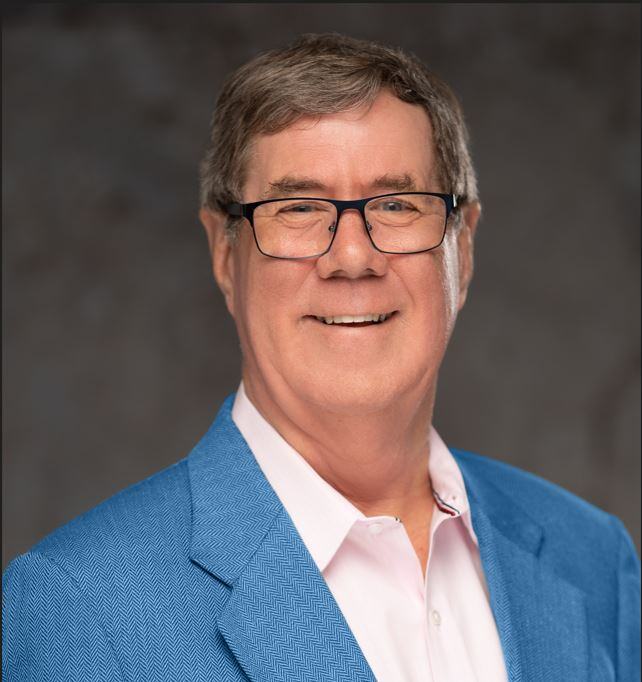
Robert Hohman, PhD
Retired Chief, Research Technologies Branch, NIAID, NIH
Dr. Hohman retired from the NIH in 2019, and currently provides technology consulting to government, industry, and academic institutions. He received his PhD in Microbiology from the University of Maryland and the NIH, where his PhD advisor was Dr. Earl Stadtman at NHLBI. After a postdoctoral position in the Laboratory of Biochemistry at the Pasteur Institute in Paris, he returned to the NIH for a second postdoctoral appointment during which he studied IgE receptor-mediated activation of mast cells. In 1992, Dr. Hohman joined Oncor Inc, a biotechnology company that specialized in DNA diagnostics based on fluorescence in situ hybridization (FISH). He became Vice President of Research and Development and helped Oncor produce the first FDA-approved FISH-based DNA diagnostic test, HER-2/neu, for women with breast cancer. While at Oncor, Dr. Hohman established a research products division; in 1998, this division was sold to Intergen and he became Vice President for Research and Development of the newly formed Intergen Discovery Products. In 2000, Dr. Hohman was recruited back to NIH to become Chief of the Research Technologies Branch (RTB) at NIAID. The RTB is a $15 million program that provides state-of-the-art technologies to the Division’s 120 principal investigators and 500 postdoctoral and clinical fellows. Dr. Hohman managed a staff of 60 scientists who developed technologies in the fields of flow cytometry, confocal and electron microscopy, structural biology, genomics, and bioinformatics.

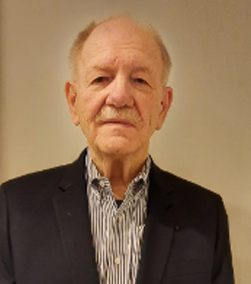
John “Ted” Ibex, CPA, ABV, CFF, MBA
Forensic Accounting Practice Professor of Accounting and Auditing
Mr. Ibex is a semi-retired certified public accountant (CPA) with a forensic accounting and investigations practice. He is a professor of accounting and auditing. He received his BS and MBA in Accounting from Penn State University. Mr. Ibex was partner in a forensic accounting firm formed in 1987 through 2010, which began as Winters & Ibex, CPAs, merged into Rosenfarb & Winters, CPAs, and merged again in Marcum, LLP. Prior to self-employment, Mr. Ibex worked for United States Army office 1967 – 1969 (active service), began his career as an auditor with Arthur Andersen & Co. (1965-1980), and was chief financial officer for two corporations. Mr. Ibex has served in many organizations in a volunteer and elected capacity as a Rotarian, elected to Board of Education (17 years of service), elected to town council (7 years of service), treasurer of Rotary Foundation Asbury Park [NJ], and Cancer Support Community. He is Chair of the FAES Audit Oversight Committee.


Henry Levin, PhD
Chief Section on Eukaryotic Transposable Elements, NIH/NICHD
Dr. Levin* is Chief, Section on Eukaryotic Transposable Elements, National Institute of Child Health and Human Development. He received his BA in Chemistry from Oberlin College and his PhD in Molecular Biology at the University of California, Berkeley. He did a postdoctoral fellowship at the Johns Hopkins University Medical School and in 1992 joined the intramural program at NIH as a tenure track investigator in the Eunice Kennedy Shriver National Institute of Child Health and Human Development (NICHD). He served on several committees including the NICHD tenure and promotions committee and the NIH Central Tenure Committee.
*Dr. Levin is serving in a personal capacity as an outside activity.


Philip Murphy, MD
Chief Laboratory of Molecular Immunology, NIAID, NIH
Dr. Murphy* is Chief, Laboratory of Molecular Immunology, National Institute of Allergy and Infectious Diseases. He obtained his AB in Biochemistry from Princeton and his MD from Cornell. He completed his residency and served as a chief resident in Internal Medicine at NYU-Bellevue Medical Center before coming to NIAID as a Clinical Fellow in Infectious Diseases. He was promoted to Senior Investigator in NIAID in 1992, and in 2003 became the founding Chief of a new NIAID lab, the Laboratory of Molecular Immunology. Dr. Murphy's research focuses on basic, translational, and clinical studies related to G protein-coupled chemotactic receptors of the immune system. Recently, his research focus expanded to include basic and clinical studies of WHIM syndrome, a primary immunodeficiency disease caused by mutations in CXCR4. He has published 321 papers in immunology, two of which have been selected as Classics by Science Magazine, and he has been elected to the American Society for Clinical Investigation, the Association of American Physicians and the Henry Kunkel Society.
*Dr. Murphy is serving in a personal capacity as an outside activity.

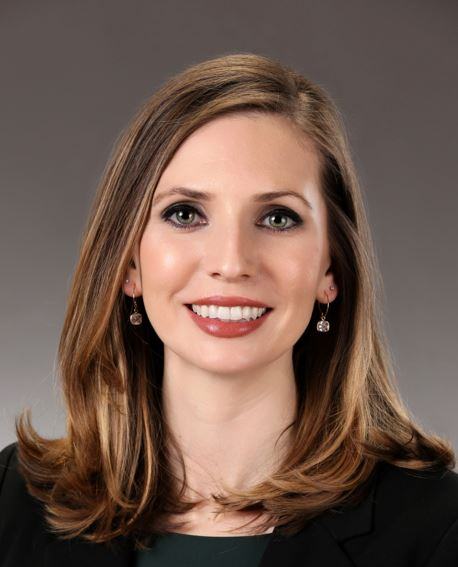
Susan Wright, PhD
Program Director, Big Data and Computational Science, Division of Neuroscience and Behavior, NIDA
Dr. Wright* is Program Director, Big Data and Computational Science, Division of Neuroscience and Behavior at National Institute of Drug Abuse, where she oversees the program that advances NIDA’s Strategic Plan for Data Science. Having trained in both neuroscience and computer science, Dr. Wright envisions how big data science can be used to understand the biological underpinnings of disease, and she is committed to promoting opportunities for cutting edge computational capabilities to be combined with biomedical research. Her portfolio includes data curation, sharing, access, reproducibility, security, analysis, harmonization, quality metrics and standards, and visualization. She serves on many NIDA, NIH-wide and multi-agency committees, including the Brain Research through Advancing Innovative Neurotechnologies (BRAIN) initiative, the Helping End Addiction Long-term (HEAL) initiative, the Science and Technology Research Infrastructure for Discovery, Experimentation, and Sustainability (STRIDES) initiative, and the Collaborative Research in Computational Neuroscience (CRCNS) program. She works closely with the Office of Data Science Strategy on implementation of the NIH Strategic Plan for Data Science.
*Dr. Wright is serving in a personal capacity as an outside activity.


Terry Jacobs, JD
Retired National Tax Partner, Ernst & Young
Terry received his BBA, Masters in Accounting, and J.D. from the University of Iowa. He also received an M.L.T. from Georgetown University. He is a member of the Iowa Bar. He started with Ernst & Young in Des Moines and has worked with many different insurance entities for the past 34 years, except for a two year period while he was at the Department of Treasury (where he worked on health care reform and regulatory projects). As a tax lawyer, Terry advised insurance companies on business challenges confronting the insurance industry and the tax implications of those changes. He was the senior Ernst & Young insurance tax partner for many multinational insurance groups. He provided tax consulting services to life insurers, property/casualty insurers, BC/BS organizations and the entities they owned. Located in Washington DC, Terry worked on corporate acquisitions and divestitures, movement of capital, minimization of tax risk, international reinsurance, insurance product issues, FATCA, consolidated returns and other tax issues. He engaged with the IRS on matters involving insurance companies. He established the global insurance tax network and the Ernst & Young tax professionals serving clients worldwide, as they addressed solvency 2, BEPS, and other regulatory developments. He retired from Ernst & Young in July 2016. Terry has recently taught at the University of Iowa Law School. The course was focused on Tax, Accounting, and Business Considerations for Lawyers.


Steven Hausman, PhD
President, Hausman Technology Keynotes
Dr. Hausman had a 31-year career as a researcher, administrator and senior executive at NIH before founding Hausman Technology Keynotes. He graduated from Central High School in Philadelphia and received his B.A. (biology), M.S. (insect physiology) and Ph.D. (immunogenetics and transplantation biology) from the University of Pennsylvania. After completing a postdoc at the Institute for Cancer Research in Philadelphia, he joined the research program of the NIH National Institute on Aging, later becoming Special Assistant to the Associate Director for Arthritis, Bone and Skin Diseases of NIAMD, and then Deputy Director of the Division of Arthritis and Musculoskeletal and Skin Diseases. When NIAMS was founded in 1986, he became Deputy Director of the Extramural Program and eventually Deputy Director of NIAMS. Based on his strong background in information technology, Dr. Hausman was asked to manage the NIH effort to convert all incoming paper grant applications (80,000 per year) to an electronic format. Following the success of this project, Dr. Hausman assumed the role of NIH Advocate for Advanced Technologies and organized the NIH Advanced Technologies Scientific Interest Group. Dr. Hausman was also active in the field of conflict-of-interest ethics and compliance. He led the trans-NIH committee to develop an enterprise-wide Ethics Data System, enabling all ethics activities to be conducted on-line in a paperless fashion. His many awards include the NIH Director’s Award, the PHS Exceptional Achievement Award, the NIH EEO Award, and the Outstanding Ethics Program Award. After his NIH retirement in 2007, Dr. Hausman founded Hausman Technology Keynotes. He is a skilled presenter with the ability to explain complex concepts and technologies to lay and professional audiences. He has been a lecturer and consultant for NIAMS, NIBIB, SAMHSA, and an adviser to Bank of America, Lowe’s, Washington Post, Potomac Power Electric Company, Bose, T. Rowe Price, CitiBank and the Mayo Clinic. He was appointed to the Board of Ethics of the Washington Suburban Sanitary Commission, and served a two-year term as Chair of the Board. Dr. Hausman enjoys classical music and musical theater, cooks enthusiastically, swims, lifts weights, and sings baritone in a community choir.


Salvatore Alesci, MD, PhD
Chief Scientific Officer, InveniAI/Invea Therapeutics
Dr. Alesci is a physician-scientist and healthcare executive with over two decades of experience in leadership roles in biomedical research in the government and biopharmaceutical sectors. His expertise in R&D strategy and translational medicine have been applied to multiple therapeutic areas and drug pipelines. He received his M.D. (cum laude) and Ph.D. in Experimental Endocrine and Metabolic Sciences from University of Messina, School of Medicine (Italy). After his post-graduate training, Dr. Alesci spent almost a decade conducting basic and translational research on the interplay between the neuroendocrine and immune systems at the NICHD, NIH. Dr. Alesci left NIH to join the biopharmaceutical industry in 2006, serving in a number of Translational Medicine leadership roles at Wyeth, Pfizer and Merck, leading efforts to “de-risk” several drug candidates as they progressed through the pipeline. In 2011, Dr. Alesci joined PhRMA as Vice President, Scientific & Regulatory Affairs, to lead the association’s science advocacy and engagement efforts, serving as chief scientific and medical expert for input on biomedical policy issues. In 2015, Dr. Alesci joined Takeda, where his last appointment was Head, R&D Global Patient and Scientific Affairs. During his tenure, he enabled Takeda to more effectively partner with patients and their organizations throughout the drug life-cycle, ensuring early and continued access to investigational medicines. Most recently, he was appointed Chief Scientific Officer of InveniAI a global leader in the application of artificial intelligence (AI) and machine learning (ML) to transform innovation across drug discovery and development.


Isaac Brownell, MD, PhD
Senior Investigator and Head, Cutaneous Development and Carcinogensis Section, Dermatology Branch, NIAMS, NIH
Dr. Brownell is a board-certified Dermatologist. He obtained degrees in electrical engineering and mathematics prior to undergoing MD/PhD training at Baylor College of Medicine. Dr. Brownell completed a dermatology residency at the New York University School of Medicine and a postdoctoral research fellowship in the laboratory of Dr. Alexandra Joyner at the Sloan-Kettering Institute. As clinical faculty at the Memorial Sloan-Kettering Cancer Center, his practice focused on patients with high-risk skin cancers. In 2011, Dr. Brownell joined the Dermatology Branch at the NIH where he is Head of the Cutaneous Development and Carcinogenesis Section. Dr. Brownell directs a research program investigating the development and maintenance of stem cells in normal skin, and the changes that occur during the formation of skin cancer. A major focus in the laboratory is the regulation of neuroendocrine Merkel cells and the molecular pathogenesis of Merkel cell carcinoma. In addition, Dr. Brownell conducts early phase clinical trials and translational research to identify novel therapeutic targets and biomarkers for this uncommon but aggressive skin cancer.
*Dr. Brownell is serving in a personal capacity as an outside activity.


Dean Metcalfe, MD, MSc
Scientist Emeritus, NIAID; retired Chief, Laboratory of Allergic Diseases, NIAID, NIH
Dr. Metcalfe received his MD from the University of Tennessee and an MSc from the University of Michigan. He completed an Internal Medicine residency at U of M, followed by a fellowship in Allergy and Immunology at NIH and fellowships in Rheumatology and Immunology at the Robert Brigham Hospital/Harvard Medical School. Under the mentorship of Professor K. Frank Austen, he became interested in mast cells and proteoglycan synthesis, publishing the first identification of human heparin in 1979. He returned to NIH where he was the founding Chief of the Laboratory of Allergic Diseases, NIAID, a position he held for 22 years, and Chief of the Mast Cell Biology Section until he retired in 2022. He was also the Director of the Allergy and Immunology Fellowship Program. During his career he trained or mentored over 100 clinical and research postdoctoral fellows, visiting scientists, and students. Dr. Metcalfe is an expert in mast cell disorders, with a focus on the etiology and treatment of mastocytosis. His laboratory identified an activating mutation in KIT as the major cause of mastocytosis and contributed to the field of mast cell biology by studying mechanisms of mast cell apoptosis, production of mast cell mediators, identification of mast cell surface receptors, and key signaling pathways regulating mast cell growth, differentiation and activation. Dr. Metcalfe is an author on over 675 scientific publications and an editor on 14 books on mast cell biology, systemic mast cell disorders, food allergy and asthma. He is a past Chairman of the American Board of Allergy and Immunology and past President of the American Academy of Allergy, Asthma and Immunology. Dr. Metcalfe has been elected to membership in the American Society for Clinical Investigation and the American Association of Physicians. He is the recipient of numerous awards including the Outstanding Commendation Medal and the Meritorious Service Medal from the USPHS; the AAAAI Distinguished Scientist Award; the AAAAI Mentorship Award, and the K. Frank Austen Lifetime Achievement Award. As an FAES Board Director, he is interested in serving on the Education Committee.


David Landsman, PhD
Deputy Scientific Director and Chief, Computational Biology Branch, National Library of Medicine, NIH
Dr. Landsman is a biochemistry graduate of the University of Cape Town, South Africa, where he studied the chromatin of sea urchin embryos and sperm. Dr. Landsman trained in molecular biology as a postdoctoral fellow in the National Cancer Institute at the NIH and moved to the NLM/NCBI as a Senior Investigator, soon after its inception in 1989. There he initiated a research program on the computational analysis of the genes and proteins involved in chromatin structure and in the regulation of gene expression in eukaryotes. He has concentrated on the analysis of both histone and non-histone chromosomal proteins as well as on the analysis of DNA sequences involved in gene regulatory events and chromatin structure. Dr. Landsman’s group now analyzes largescale DNA sequencing experimental results to achieve these goals. His special interest is the merging of results obtained in computational biology analyses with those derived from experiments in biochemistry, molecular biology, cell biology, and genetics. Dr. Landsman was also the Co-Director of the NIH/Boston University Graduate Partnership Program in Bioinformatics and has taught at several universities including Johns Hopkins University, Catholic University of America, and George Mason University. In 2009, Dr. Landsman became the founding Editor and Editor-in-Chief of a new journal called ‘DATABASE, the journal of biological databases and biocuration’ published by Oxford University Press. Dr. Landsman has been Chief of the Computational Biology Branch at the NLM for >20 years and recently was appointed as Deputy Scientific Director.
*Dr. Landman is serving in a personal capacity as an outside activity.


Kay Turos Thomas, BBA, MPA
Retired, Higher Education Philanthropy and Institutional Advancement Executive
Kay obtained her BBA (cum laude) from Texas A&M University and her MPA (with honors) from Troy State University - European Region. Kay retired from The University of Texas System in 2021 after 25 years of service. She worked with broad constituencies in complex fundraising environments. She is experienced in principal and major gift solicitations, gift planning, annual giving, campaign planning, external relations, advisory councils, organizational administration, project management, database management, metrics and evaluation, and human resources development. During her time at The University of Texas at Austin, she served as the Associate Dean for External Relations at the College of Natural Sciences, where she led a team that garnered $274 million in total philanthropy, attained $44 million in endowment giving and established 153 new endowments over an eight-year period. This complex college then consisted of 15 academic departments and 35 organized research units. Kay developed fundraising strategy for capital campaign initiatives with her college dean and advisory council. She directed the funding plan to build the $120 million Bill & Melinda Gates Computer Science Complex and worked on the negotiation team for the Gates Foundation $30 million challenge grant. She raised endowments to sustain support for faculty, students, research and programs. Programmatic initiatives included the nationally acclaimed UTeach Math and Science teacher preparation program, Hobby-Eberly Telescope Dark Energy Experiment, the Freshman Research Initiative, Stengl Lost Pines Biological Field Station and the Turing Scholars in Computer Science. She co-managed a faculty-led advisory group that led to the construction of the The Larry R. Faulkner Nanoscience and Technology Building. Under UT Austin’s Office of the Executive Vice President & Provost, she managed the external relations office for the nationally recognized Student Success Initiatives, including the University Leadership Network, a flagship program to improve four-year graduation rates. She has experience in foundation relations encompassing research and cultivation of foundation partners, evaluating calls for proposals and working in team environments to develop multi-unit/cross-disciplinary proposals.

Non-Voting Ex-Officio Members
- Christina Farias, MBA
- Kevin Klock, JD
- Larry Samelson, MD
- Margaret Thomas, MS
- Richard Wyatt, MD





